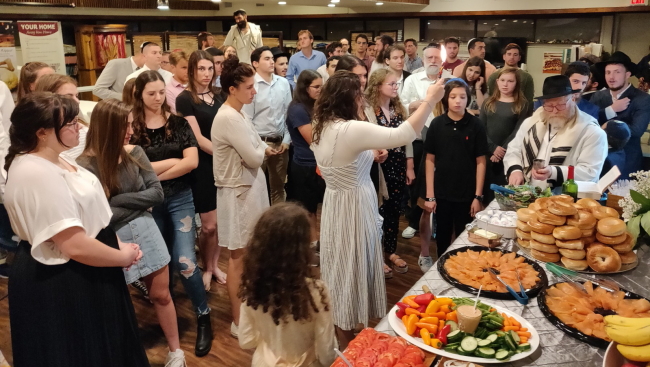SUNSET TUESDAY, OCTOBER 4: From the hope-filled celebration of Rosh Hashanah, Jewish families move to the solemn observance of what often is called the holiest day in the calendar: Yom Kippur, or the Day of Atonement. Most Jews aged 13 and older try to complete a 25-hour fast with nothing passing the lips—no liquids or foods of any kind.
Between the two major holidays of Rosh Hashanah and Yom Kippur—a period sometimes called the Days of Awe—Jews reflect on the past year and make amends for their failings. They look toward the balance of the new year (which is only 10 days old on Yom Kippur) and pray that God will renew their spirits and guide them in good ways.
YOM KIPPUR: THE HOLIEST DAY
Visit any Jewish house of worship and you will see ways that the main seating area can be expanded on special occasions. On Yom Kippur, all overflow seating areas are opened so that everyone in the Jewish community can show up for at least part of the long series of services.
Services open with Kol Nidre, a deeply emotional moment when the larger Jewish community gathers, amends are made, and the community symbolically opens itself to regular attendees as well as others who rarely come to services. There is a long and complex history to the traditions of Kol Nidre, but overall, it represents a fresh resetting of commitments and promises within the community.
The rest of the Yom Kippur litugy also has beautiful moments that encourage repentance, recommitment to the faith’s ideals and remembrance of the core story that has led the Jewish people through thousands of years of challenges. Rabbis typically spend a great deal of time preparing their Yom Kippur sermons, recognizing that they are preaching to many men and women who only hear them on Yom Kippur.
While this holy day often is described as somber—Rabbi Lenore Bohm makes it clear that this holy day is not intended to dwell on suffering and sadness. On the contrary, she writes in her holiday column, “Regret and remorse may have their place, but they are not the essence of the season. Rather, we strive to look at life with fresh eyes and trust that the new year will grant us opportunity to renew our purpose, hope and belief.”
from Religious Holidays https://ift.tt/hxs3iFK

 :: Unlock Your Success with Our Digital Course →
:: Unlock Your Success with Our Digital Course →














No comments:
Post a Comment